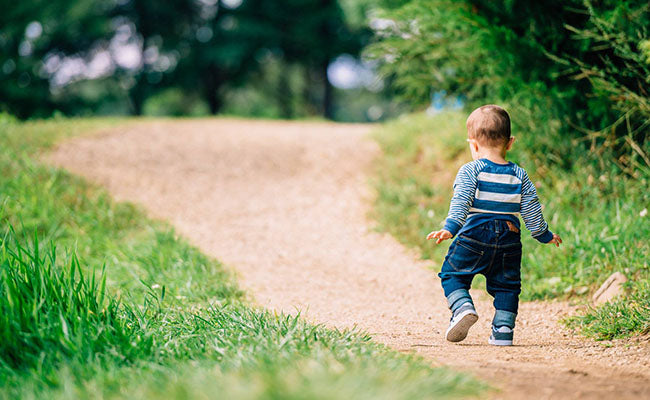
Shopping for your child’s shoes is certainly a pleasure. Parents naturally want the best for their children, and that includes the best shoe money can buy. But the most expensive and chicest pair aren’t always the best choice for your child’s needs. Finding the right shoe takes careful consideration and attention.
There are a lot of cutesy and trendy kids’ shoes on the market. And then there are the supportive or orthopaedic shoes. These are the more structured and specifically designed shoes for toddlers. Regular toddlers’ shoes are generally cheaper, available in your nearest mall and come in an endless range of colours, designs, and styles. Supportive or orthopaedic shoes for toddlers are priced higher, can be harder to find and might come in limited designs.
As practical parents, we might not even think twice about choosing the more convenient and sensible choice, right? Not on this matter. Before you go to the mall to pick up your toddler’s next shoes, consider the following comparisons between a regular shoe and an orthopaedic shoe.
The Support Features
Your child is growing the fastest in his or her first three years. The feet, in particular, are changing, not only in size, but also in shape. This is also the period when bones are starting to form and develop. Most bones of the human body are formed on the third to fifth year of life, yet they are still soft and growing. While we already have the arch support by the age of three, it is not yet fully developed. Thus the need for optimum support.
The feet carries the weight of the body, and as toddlers are becoming more active, their feet carry the brunt of jumping, running, and balancing. Left unsupported, the natural arch will eventually flatten, and risk your child’s posture, gait and growth. Regular children’s shoes do not feature arch supports or pads. To maintain and support the natural arch and bone development of your child, find shoes with contour pads and inserts, and made of sturdy materials.
The Fit
The right fit is the most important factor to your kid’s comfort. A shoe that fits will improve your child’s balance and coordination. Aside from the length of the shoe, also consider the width and the height. Best shoes for children offer adjustable Velcro straps, wide openings and a lot of soft inserts and pads for optimum comfort and fit.
Parents tend to buy slightly bigger shoes for it to last longer, especially for toddlers whose feet are growing at a fast rate. Take into consideration that your child is still new to walking, running, and keeping his or her balance. Larger shoes will not help him or her at all. Instead, it will contribute to endangering your child due to trips and falls.
Regular children’s shoes might not consider the natural shape and contour of child’s feet. As we are mostly concerned of the fit length-wise, your child might be suffering from too narrow ill-fitting shoes. If your child has different shoe sizes, follow the bigger size foot size only if the difference is slight, else, buy a different pair for each foot.
The Sole
The right kind of soles is important to choosing the right shoes for kids. Look for compact yet flexible soles. It should have traction and wide enough to support balance. Avoid stiff and smooth soles. Stiff sole will hamper the natural growth of your child’s feet while smooth and slippery soles are hazardous for children.
Regular children’s shoes are often smaller versions of adult shoes. They might include features common to grown-up shoes like thin straps, complex closures, and smooth and unwieldy soles that can be dangerous for children. Your child is not yet equipped with skills to manage adult shoes, don’t force them into wearing one.
Remember that your child’s feet are growing and changing at a great speed, so are his or her needs for shoes. First Walkers offers a collection of children’s shoes that cater to growing kids. Click here to check out our adorable line of supportive or orthopaedic shoes for kids from one-year-old pre-walkers to active school children.